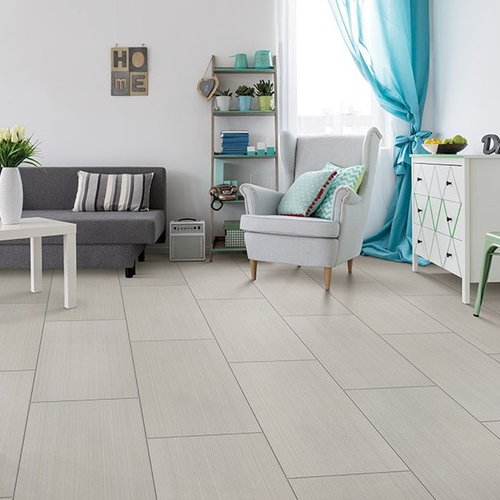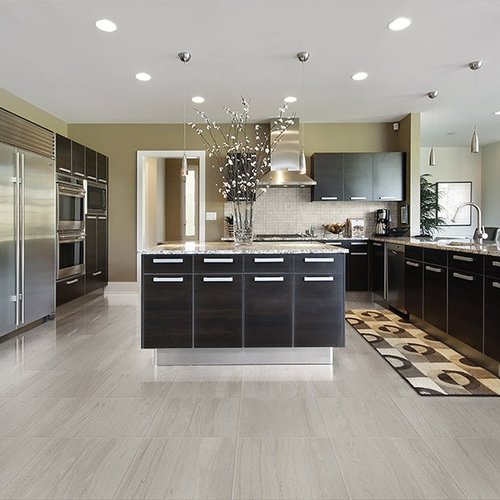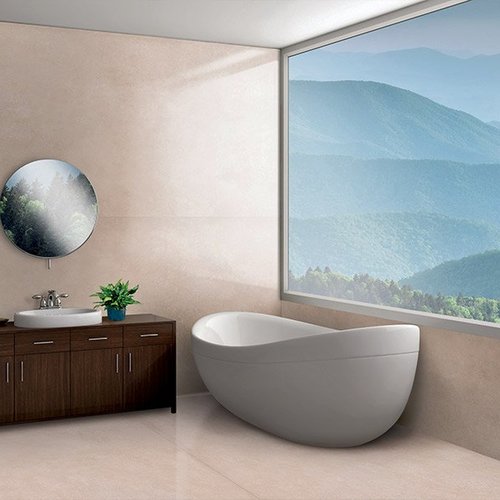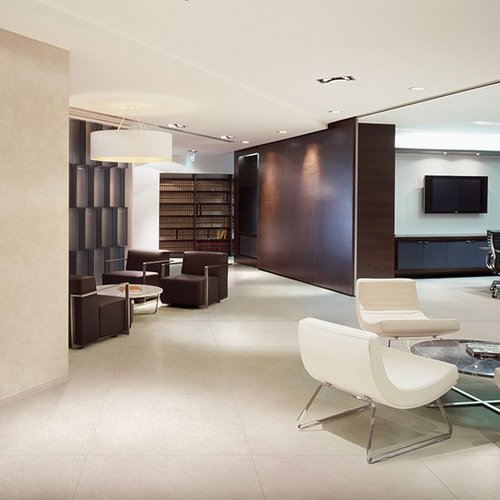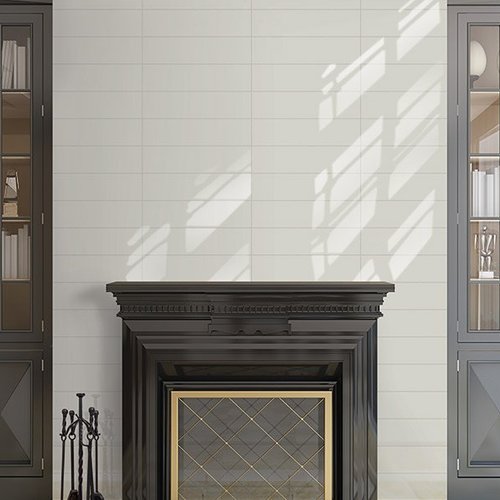Tile comes in all major product types including floor tile, wall tile, mosaics, and decorative tiles. From glazed floor to color body to porcelain tile, Bisbee’s Flooring Center has a product to suit virtually any use throughout the home.
Since color and design are so important in creating the right look, our vendors have taken special care to create products that offer the right blend of colors, sizes, textures, and finishes to express your individuality.
No matter your budget or taste, Bisbee’s Flooring Center offers products with an incredible wealth of design options that work together to help create your own inspired, amazing space.
Choosing the perfect ceramic & porcelain for your home
Ceramic & porcelain tiles could be the materials that add the final puzzle piece to your existing decor. If you’ve been looking for flooring with an exquisitely elegant look, commercial-level durability, and a great lifespan, you need to look no further than this product line. The appearance of this material gives you the ability to create unlimited visuals, from simply rustic, to outlandishly artistic, and everything in between. Both products give you a stable surface for even the busiest home, and you’ll find lifespans of up to 50 years, on average, with proper maintenance and care.
At Bisbee's Flooring Center, we are proud to offer a great selection of flooring that encompasses an excellent variety of colors and styles. You’ll find yourself in the midst of some of today’s hottest trends but you won’t have to break the bank to get them. We serve the areas of McFarland - Monona, Middleton, and Sun Prairie from our two showroom locations in Sun Prairie and McFarland, WI. We’d like to invite you to visit us at your convenience and allow us the opportunity to help turn your flooring dreams into a project we can get through together. No matter how big or small, we look forward to serving you.
Ceramic & porcelain & their many benefits
Ceramic & porcelain are commonly used in commercial settings so businesses can take advantage of the immense levels of durability found in them. They resist scuffs, scratches, and stains, well as do an excellent job at maintaining color instead of fading out, even in sunlight. They also resist chips and cracks, but when you choose porcelain, with its through-body coloration, even those won’t show should they happen. It’s that same kind of durability you can bring into your own home for absolute peace of mind against daily wear and tear.
You’ll also appreciate the fact that ceramic & porcelain come in a wide variety of formats. The tile sizes can be as small as a postage stamp, with larger formats measuring 18 x 18 and 24 x 24. The smaller sizes are excellent for use in mosaics, or even just a solid color pattern where the small pieces create the look. Larger sizes are great for toning down big areas and spaces and they use a lot less grout when they’re installed. We’ll make sure you get the size that meets your needs and looks best in your space with your other interior decor.
Tile & stone
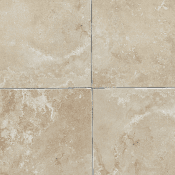
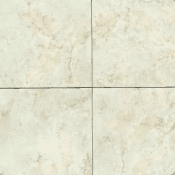
Types of tile & stone
There are four distinct types of stone. The types include Ceramic, Porcelain, Marble & Granite. Within the Ceramic selections, there is glazed tile and unglazed floor tile (also known as Natural Stone). Glazed is the most common and it has a special coating that is applied to the body of the tile and then fired at a very hot temperature to seal the tile. The glazing then creates a non-porous result. The benefits of a glazed stone include stain resistant, scratch resistant, fire resistance, fade resistance, slip resistant, and ease of cleaning.
The unglazed floor tile (also known as Natural Stone) is free of the glazing process. However, while the unglazed tile can be incredibly beautiful, it is porous and needs to be maintained regularly. There is a special sealant that can be applied to prevent stains and any seepage of dirt or spill into the pores of the stone.
Porcelain tile is a type of ceramic that is made of a very fine mixture of clays and minerals. The molecular makeup is similar to fine china. These clays allow the porcelain to be fired at even hotter temperatures than the ceramic tiles, typically near 2400 degrees (F). The higher the temperature, the denser the tile will become and the less moisture the product will attract. Porcelain tile has the same benefits as ceramic tile but they are denser and harder than most other tiles, they are highly stained and moisture resistant, and they are naturally hygienic with an easy-to-clean surface.
Marble, Granite & Limestone are very popular stones today. These stones are naturally made and therefore individually unique. They are mined out of quarries and consequently, no two stones are the same. One important feature of these types of materials is that they need to be sealed. They can be extremely porous and therefore care needs to be taken with the maintenance. While they are porous, it is not hard to care for them, which makes them very popular in many homes today.
Reimagine your home
With our tile flooring gallery
Have questions? We're here to help.
Contact us today to get started on your project!
Sun Prairie Showroom
| Mon | 9:30AM - 6:00PM |
| Tue | 9:30AM - 6:00PM |
| Wed | 9:30AM - 6:00PM |
| Thu | 9:30AM - 6:00PM |
| Fri | 9:30AM - 6:00PM |
| Sat | 9:30AM - 2:00PM |
| Sun | Closed |
Request an Estimate
Success!
Thank you! We'll be in touch shortly.


